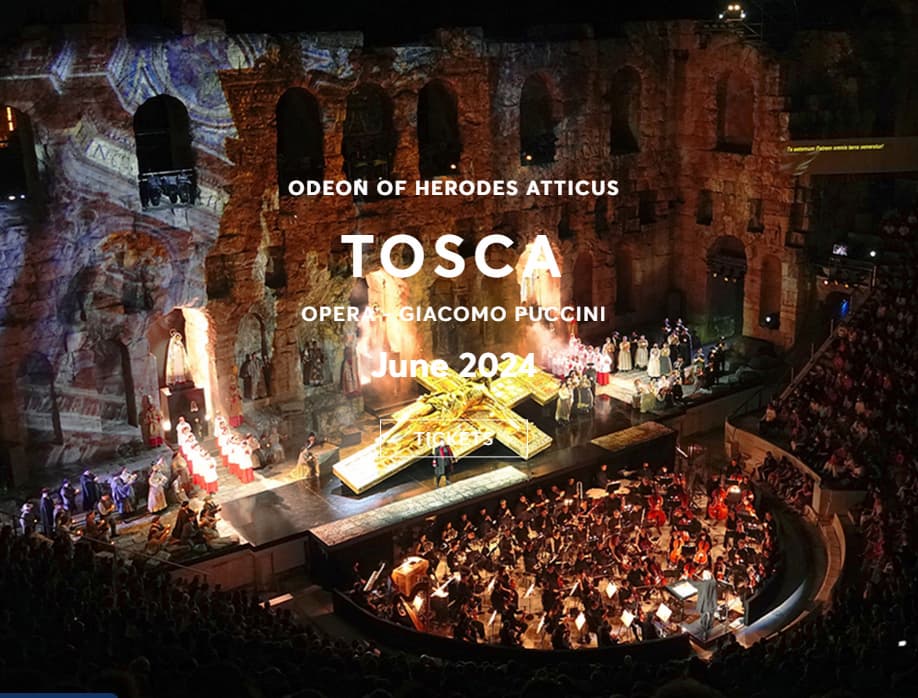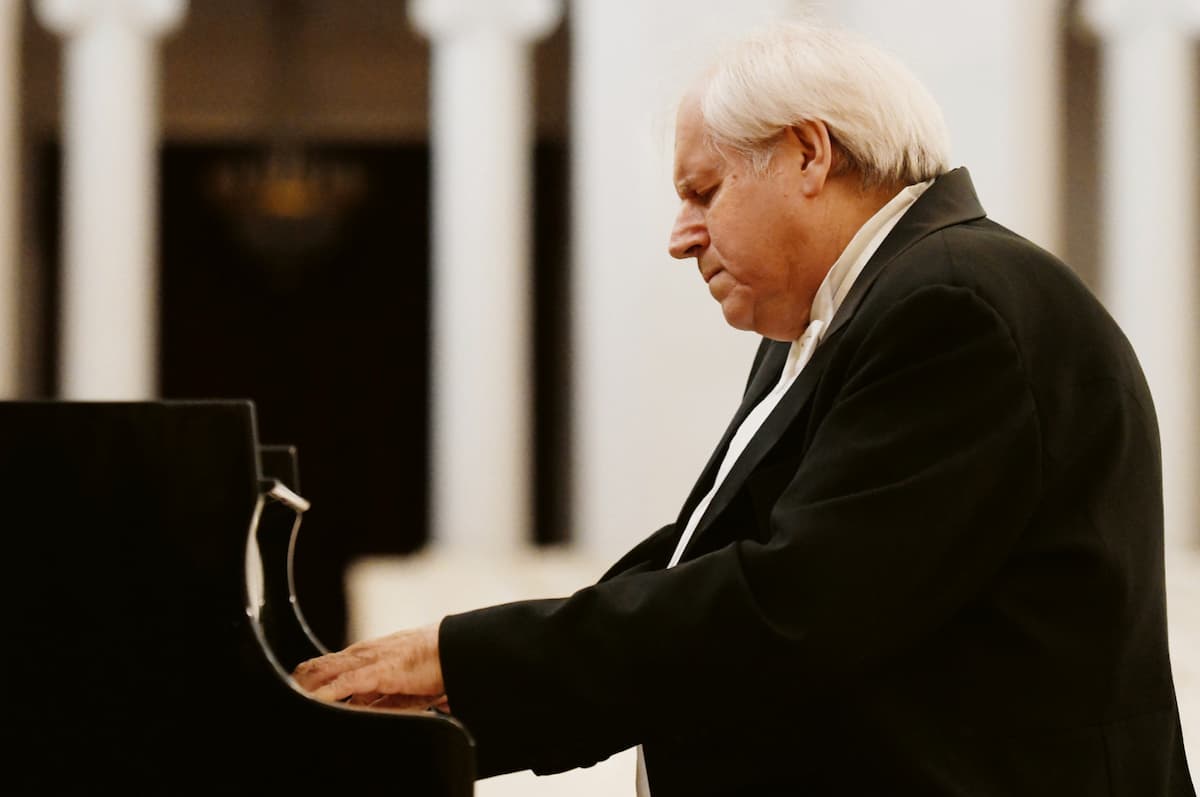The history of Kurt Weill’s 1930 masterpiece, Aufstieg und Fall der Stadt Mahagonny (Rise and Fall of the City of Mahagonny) at the Greek National Opera is an uneasy tale of power and achievement. The first production in 1977 was pushed by then Deputy-Director of GNO Manos Hadjidakis. Concurrent problems with his other positions (Director of the Athens State Orchestra and Director of Hellenic Broadcasting Corporation’s (ERT) Third Program), such as suggesting more employment of foreign musicians, led to his removal from the board of the GNO and his removal as conductor of Mahagonny. With his departure, GNO learned immediately how much his knowledge of the opera and his ideas had gone with him and it was felt that the entire artistic vision had been eviscerated. However, the opera did have its debut at the Olympic Theatre on 22 November 1977. In an ironic twist, at its premiere, the GNO orchestra was on strike, and the opera was performed on 2 pianos and directed by a German, Hans-Werner Pintgen.

Greek National Opera: Rise and Fall of the City of Mahagonny poster
The 1977 production was 47 years after the opera’s premiere in 1930 and now the 2024 production is another 47 years later. Although the 1977 production had been described by critics as ‘an unfortunate choice’ and too much for the ‘weak shoulder of the Greek National Opera…’, the 2024 production was imaginative and powerful. The new production had its premiere on 12 April 2024.
As the program notes indicate, the world that this opera is now confronting is not just capitalist America but the capitalism of the world. Weill’s opera was given its debut a mere 6 months after the Crash of ‘29, and now this opera follows the global disaster of COVID – we are forced to see these parallels through Brecht’s language. Money is spent on real opiates of the people: food, sex, prize fights, and drinking. What has changed? Junk food, PornHub, Netflix, and designer gin for today’s opiates!
Kurt Weill: Aufstieg und Fall der Stadt Mahagonny – Act I: Oh show us the way to the next whisky bar (Anja Silja, Jennhy; Cologne Pro Musica Vocal Ensemble; Cologne Radio Orchestra; Jan Latham-König, cond.)
Trinity Moses (Tasso Apostolou) was the outstanding member of the trio of creators of the doomed city. Fatty the Bookmaker (Christos Kechris) and Leokadja Begbick (Anna Agathonos) each added their own particular vice to the soul of the city. Jenny Hill (Marissa Papalexiou) and her girls brings sex to the city, and the quartet of Alaskan lumberjacks, Jim Mahoney (Vassili Kavayas), Jack (Yannis Kalyvas), Bill (Harris Andrianos), and Joe (Yanni Yannissis) round out the characters.
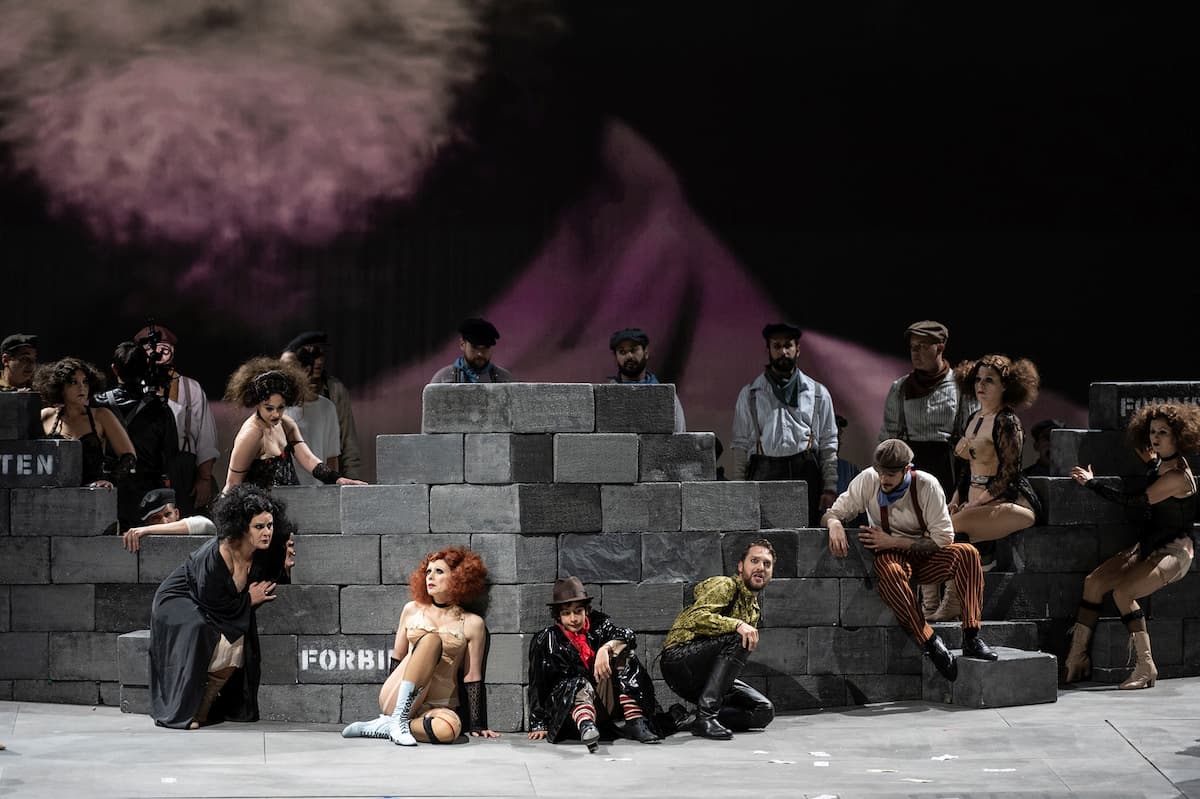
Mahagonny, Building the City, Jenny (l), Narrator (c), and Jim (l) (Photo by George Kalkanidis)
Yet, in this production, two more critical, non-singing characters have been added: a child Narrator (Anmar Ibrahim Jassim Mohamed Al Ghanimi), who announced in Greek what would have been the title cards in a silent movie, setting up the upcoming scenes, and a Filmmaker (Odysseas Tsiounis) whose film is immediately projected on the buildings of Mahagonny. These added two characters were enormously effective in tying a lot of seemingly unconnected scenes together, and the Filmmaker’s shots gave greater depth to the production by his focus on individual characters often at the back of the stage (not necessarily the stars).
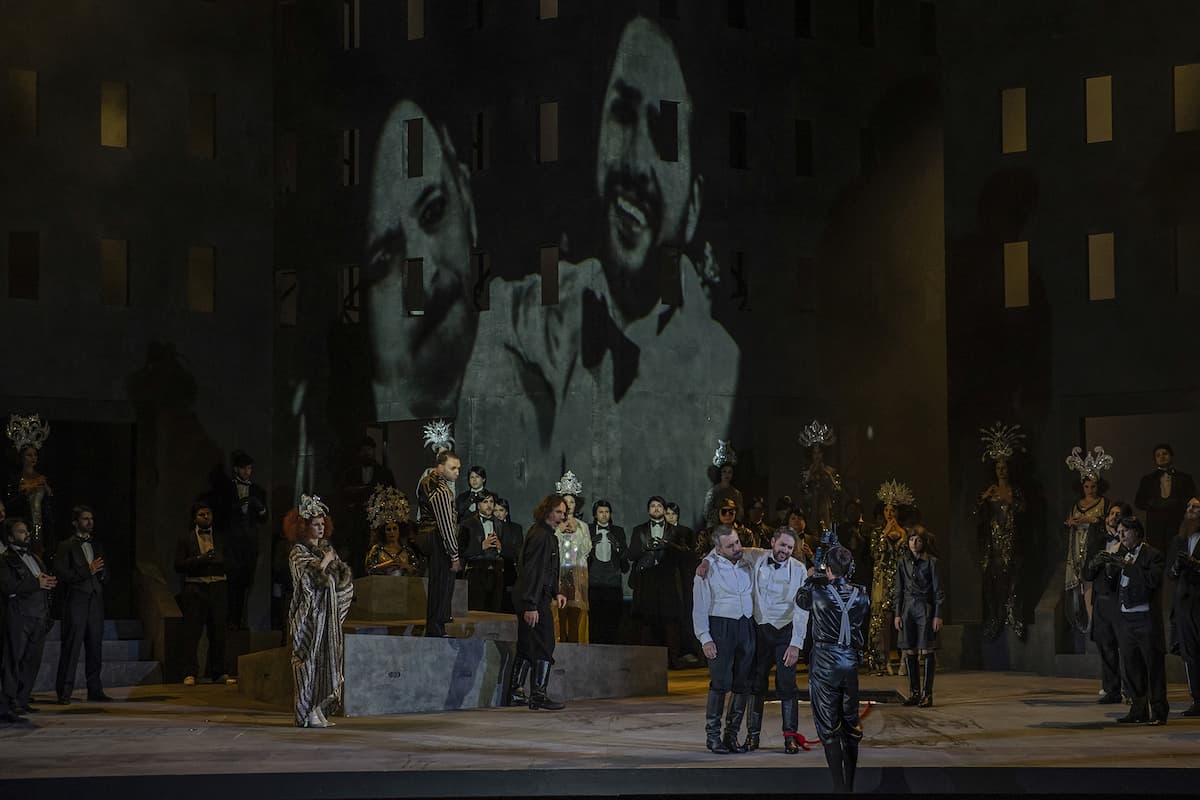
The Filmmaker focuses on Bill (l) and Jim (r) as Jim comes up for trial (Photo by Andreas Simopoulos)
The style of the opera turned from browns and greys to black and white. The styling of Jenny’s girls (her six and the six additional non-singing girls), by the final act, is pure 1920s – silver clothes and silver headdresses. The costumes were by Ioanna Tsami and were quite spectacular, particularly when the silver caught the light.
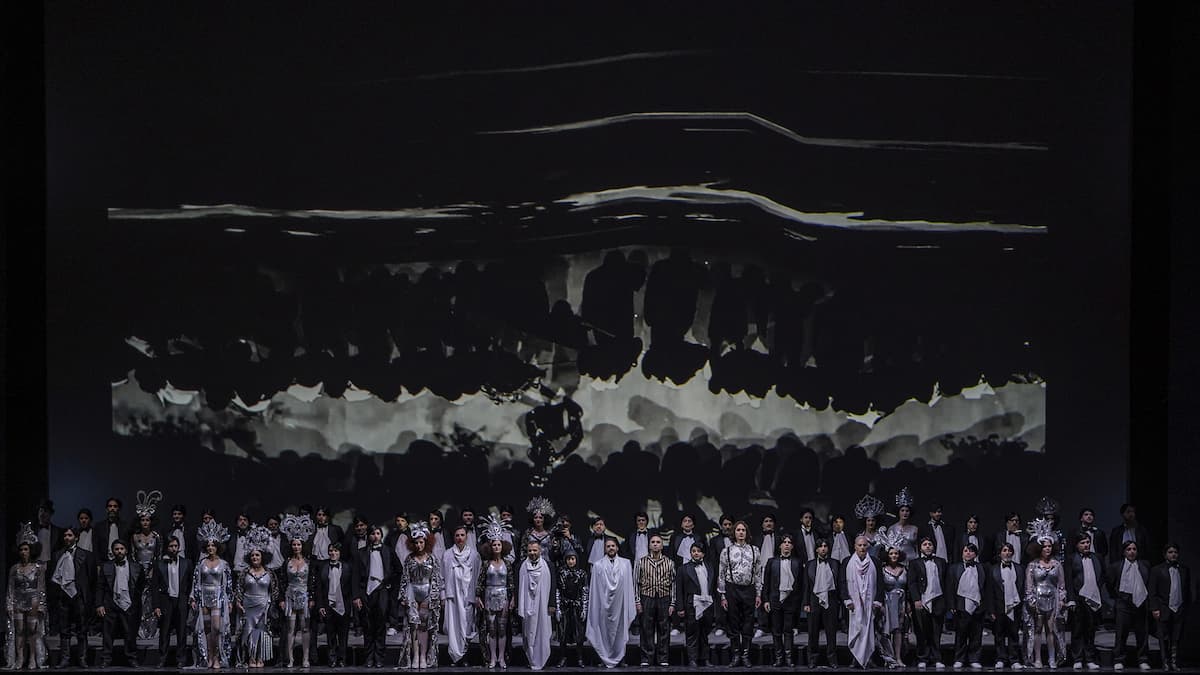
Mahagonny, Act III, full cast (Photo by Andreas Simopoulos)
The chorus was strong but the orchestra, augmented by a banjo, an upright piano, a bandoneon, and three sax players, was less so, often seeming a bit lost in the notes and missing the jazz elements at times.
The added Greek elements could have been translated, being in neither German nor English. At the beginning of Act II, when the various vices of the city are played out “Eating”, “Loving”, “Fighting”, and “Drinking”, they’re signaled by signs on the buildings…but only in Greek when it would have been easy to add English on the other building. At the end of the opera, when Mahagonny is in flames and demonstrators come in with placards that also illustrate the vices: ‘For Inflation’, ‘For Freedom For The Rich’, ‘For Brute Stupidity’, etc. they were only in Greek. For this audience member, the point of it was rather lost.
And, more critically, during the production I saw, there was a power outage at the very last scene. The stage went dark, the emergency house lights came on, but everyone kept singing, and the orchestra played on. In the audience, we weren’t sure if it was part of the anti-capitalist plot of the opera, putting the spotlight on us. The opera finished, applause, and there was an attempt at bows, but with no emergency stage lighting, there wasn’t anything to really see. There was some sort of announcement in Greek that wasn’t translated into any other language. I would hate to think what would happen in a real emergency.
Trailer: Rise and Fall of the City of Mahagonny
Behind the scenes:
Greek National Opera
Rise and Fall of the City of Mahagonny
Kurt Weill / Bertolt Brecht
12, 14, 19, 21, 23, 25 April 2024
For more of the best in classical music, sign up for our E-Newsletter

